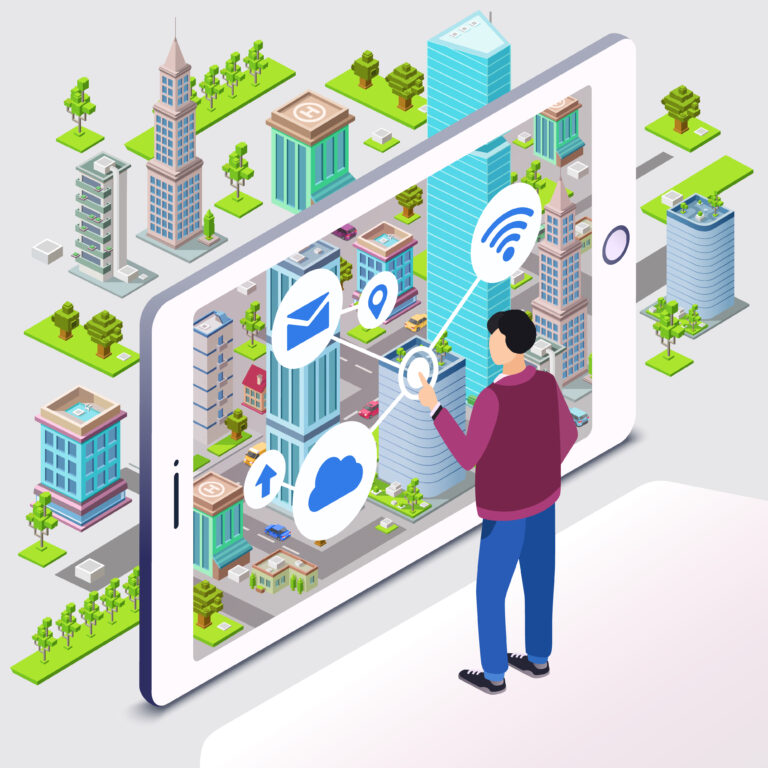The Impact of Technology on Globalization
Globalization, the process of increasing interconnectedness and interdependence among countries, has been significantly influenced by advancements in technology. From communication to transportation and beyond, technology has reshaped how we interact on a global scale. Let’s explore the profound impact technology has had on globalization.
Enhanced Communication
Technological advancements in communication have made it easier and faster to connect with people around the world. This has fostered international collaboration, cultural exchange, and global commerce.
Internet and Social Media
The internet and social media platforms have revolutionized how we share information and stay connected.
- Instant Communication: Platforms like email, instant messaging, and video calls allow for real-time communication, breaking down geographical barriers.
- Global Communities: Social media platforms enable people to form communities based on shared interests, regardless of location. This promotes cultural exchange and mutual understanding.
Mobile Technology
Mobile phones and smartphones have brought the world closer by providing access to communication tools anytime, anywhere.
- Accessibility: Mobile technology ensures that even people in remote areas can connect to the global network.
- Apps and Services: Mobile apps facilitate everything from banking to education, integrating more people into the global economy.
Increased Trade and Commerce
Technology has transformed global trade and commerce by streamlining processes, reducing costs, and opening new markets.
E-commerce
E-commerce platforms have made it possible for businesses to reach customers worldwide, regardless of their physical location.
- Global Marketplaces: Platforms like Amazon, Alibaba, and eBay allow businesses to sell products globally, expanding their customer base.
- Payment Systems: Secure online payment systems enable seamless transactions across borders, facilitating international trade.
Supply Chain Management
Technological advancements in supply chain management have optimized global logistics and distribution.
- Automation: Automated systems improve efficiency and accuracy in inventory management, order processing, and shipping.
- Tracking and Analytics: Advanced tracking and data analytics provide real-time visibility into supply chains, helping businesses respond to disruptions and optimize operations.
Innovations in Transportation
Technological progress in transportation has reduced the time and cost of moving goods and people around the world.
Air Travel
Advancements in aviation technology have made air travel faster, safer, and more affordable.
- Increased Connectivity: More routes and flights connect distant locations, making international travel more accessible.
- Efficient Aircraft: Modern aircraft are more fuel-efficient and capable of longer flights, reducing travel time and environmental impact.
Shipping and Logistics
Improvements in shipping technology have streamlined global trade and logistics.
- Containerization: The use of standardized containers has revolutionized cargo transport, making it faster and more cost-effective.
- Automated Ports: Automation in ports has increased efficiency in loading and unloading ships, reducing turnaround times.
Cultural Exchange
Technology has facilitated cultural exchange by making it easier to access and share cultural content from around the world.
Streaming Services
Streaming platforms provide access to a vast array of content, including movies, music, and television shows from different cultures.
- Global Reach: Services like Netflix, Spotify, and YouTube offer content to a global audience, promoting cultural awareness and appreciation.
- Content Diversity: These platforms support the creation and distribution of diverse content, giving voice to different cultures and perspectives.
Online Learning
Online learning platforms have made education more accessible, fostering global knowledge exchange.
- MOOCs: Massive Open Online Courses (MOOCs) offered by platforms like Coursera, edX, and Khan Academy allow people worldwide to access high-quality education.
- Virtual Classrooms: Online learning tools enable students from different countries to collaborate and learn together, promoting cross-cultural understanding.
Economic Growth and Development
Technology has driven economic growth and development by creating new industries, jobs, and opportunities.
Innovation and Entrepreneurship
Technology has lowered barriers to entry for entrepreneurs, enabling innovation and business creation.
- Startups: The tech industry has seen a surge in startups, driving economic growth and job creation.
- Access to Capital: Crowdfunding platforms and online investment opportunities have democratized access to capital, supporting entrepreneurial ventures.
Remote Work
Technological advancements have made remote work possible, changing the dynamics of the global workforce.
- Telecommuting: Remote work tools enable people to work from anywhere, expanding job opportunities and reducing geographical constraints.
- Global Talent Pool: Businesses can now hire talent from around the world, accessing a diverse and skilled workforce.
Conclusion Technology has profoundly impacted globalization, enhancing communication, trade, transportation, cultural exchange, and economic growth. By breaking down barriers and connecting people worldwide, technology has made the world more interconnected and interdependent. As technology continues to evolve, its role in shaping globalization will only become more significant, creating new opportunities and challenges for the global community. Embracing these advancements can lead to a more integrated and prosperous world.






